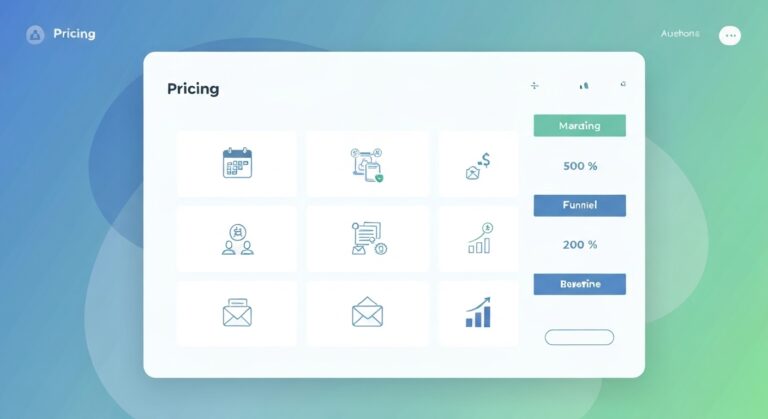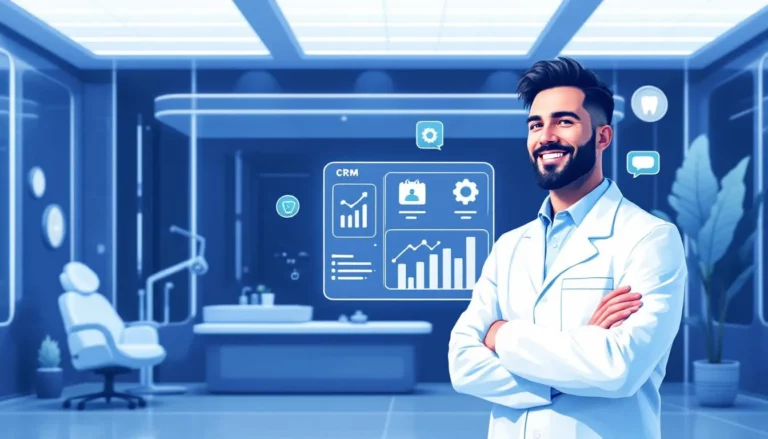
Introduction – Why Scaling an Agency Requires More Than Hustle
Ask anyone who has taken their agency past the comfortable six-figure mark, and they’ll tell you: the leap to seven figures isn’t just about finding more clients. It’s about building a business that can handle them without breaking under its own weight. Scaling is a different game from starting up. Suddenly, getting the next big account isn’t as important as taking care of the ties you worked so hard to build.
At that point, a strong CRM stops being a “nice to have” and turns into the heart of your business. There is a lot of competition between departments in 2025. Clients want quick answers, one-on-one conversations, and a smooth process from the initial pitch to the repeat. Using sticky notes, files that are all over the place, and a bunch of tools that don’t work together can quietly stop growth. A CRM designed for growing agencies not only keeps things organized, but it also frees up leaders to focus on long-term growth instead of day-to-day chaos.
From Founder-Led Chaos to Predictable Systems
In the beginning, most companies work on speed. The founder knows every client by name, remembers key project details off the top of their head, and has a mental map of every opportunity in the pipeline. That works — until it doesn’t. As the client list grows, that same founder becomes the bottleneck.
One agency owner I spoke with last year admitted they lost a six-figure retainer simply because they missed a follow-up email buried in a thread. It wasn’t a lack of skill or a bad offer — it was a lack of system. Implementing a CRM immediately changed the game. Every conversation, proposal, and follow-up was tracked in one place. Tasks stopped slipping through the cracks. Deals stopped falling apart due to “I thought someone else was handling that.”
This shift from reactive scrambling to proactive management is what gives agencies the headspace to scale. Without it, growth becomes a frustrating cycle of two steps forward, one step back.

CRM as the Central Growth Engine
A well-implemented CRM does far more than store contact information. It acts like the agency’s mission control center. Every lead, client, and campaign has its place, and every team member knows exactly what’s happening next.
Think about lead management. New chances might come in slowly without a CRM, through LinkedIn, recommendations, cold emails, and incoming requests, all of which would need to be handled in a different way. When you have a central system, those leads go into a regular process. They are immediately tagged, ordered, and given out. The sales team knows which leads are ready for a deal and which ones need more time to get to know them.
As a result? Less time between sales and more stable income. That reliability is gold if you want to make seven figures, because it lets you plan without crossing your fingers when to hire people, spend money on marketing, and grow.
Data-Driven Decisions Instead of Guesswork
One benefit of using a CRM to help a business grow that is often ignored is the clarity it brings. Instead of hunches, use numbers. Don’t say, “I think our conversion rate is fine.” Instead, show where in your path leads stop being interested.
For example, a creative agency in Chicago noticed that most of their deals stalled right after sending a proposal. The CRM’s analytics made it obvious. They revised their proposal follow-up process, added automated reminders, and improved their close rate by 15% in two months. That boost alone added an extra $200,000 to their annual revenue without chasing more leads.
When every key metric is visible, you can fix the leaks before pouring more water into the bucket. And in scaling, plugging leaks is often more profitable than just pushing for more volume.
Automation That Feels Personal
Scaling doesn’t mean losing the personal touch that got you your first clients. In fact, automation done right can make interactions feel even more personalized.
A robust CRM allows you to send targeted emails based on a prospect’s behavior, remind account managers about client milestones, and follow up at just the right time — without relying on someone’s memory. For example, if a prospect downloads your pricing guide, the CRM can automatically send a helpful email with case studies a day later, followed by a check-in from a sales rep the next week.
This kind of automated nurturing works around the clock. Your team isn’t stuck sending repetitive emails, but clients still feel like they’re getting personal attention. That balance is what allows an agency to grow without doubling headcount every few months.
Creating Accountability Across the Team
One challenge that hits agencies hard during growth is maintaining consistent performance across the team. In small teams, peer-to-peer updates and casual chats cover most of it. But with ten or more people handling multiple clients, it’s easy for accountability to slip.
A CRM makes accountability visible. Clear due dates are given for tasks. Sales pipelines show who is making progress on deals and who needs help. When ownership is clear, clients no longer hear “I thought someone else was taking care of that.”
Not only does this stop mistakes from happening, but it also makes the team feel safe and lets everyone focus on their skills.
Client Retention as a Scaling Strategy
People who are trying to grow often make the mistake of focusing on getting new customers and ignoring their current ones. It takes a lot more to get a new customer than to keep an old one happy. By reminding them of check-ins, extension dates, and performance reviews, a CRM helps companies stay in touch with their present clients.
For example, one marketing company set up automatic notes to review every 90 days. Each review had campaign success data that were taken straight from the CRM. Clients liked how clear everything was, and refills went through the roof. A big reason why they hit seven figures in just two years was the rise in the total value of their clients.
Adapting the CRM to Your Agency’s Unique Model
Not every CRM works for every business. Some companies need to be deeply integrated with advertising platforms, while others need to be able to handle projects well. The best CRMs are adaptable and can be changed to fit your needs so they don’t get in the way of your current processes.
Firms that get the most out of their CRM treat it like an investment that will last for a long time. They teach their teams new skills, make their processes better, and regularly check their setup. The reward is a system that grows with them instead of stopping them.

Conclusion – Building for Sustainable Growth
If you want to make seven figures, you need to work on making an engine that runs smoothly at any speed. CRM for scaling agency business. Even as the business grows, it keeps data collected, processes uniform, and customer service high.
In the end, agencies that are able to grow are the ones that stop depending on luck, memory, and hard work. They make tools that help with every contact with a client, every team member, and every growth plan. A good CRM doesn’t take the place of hard work; instead, it makes sure that the work pays off in a way that can be repeated and expanded.





